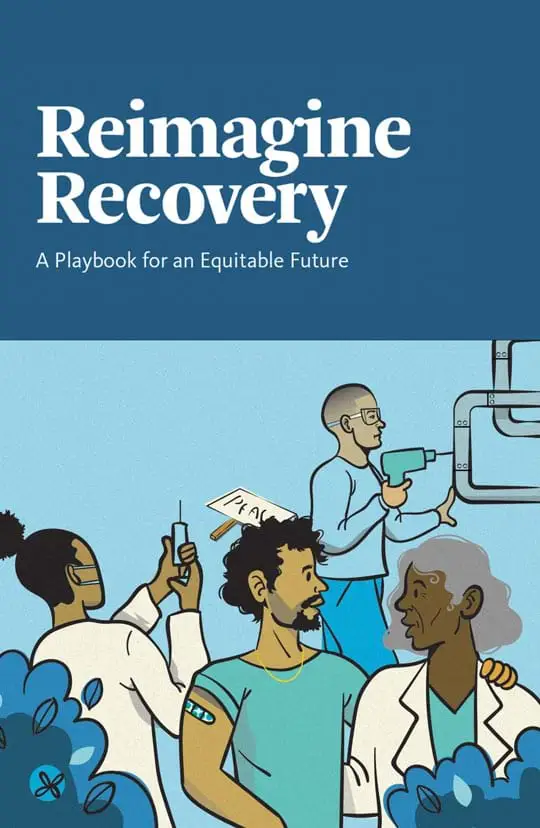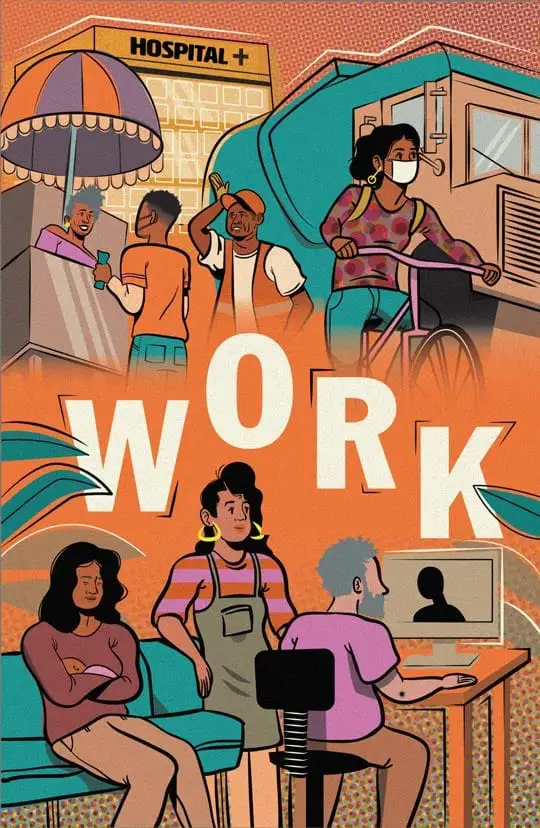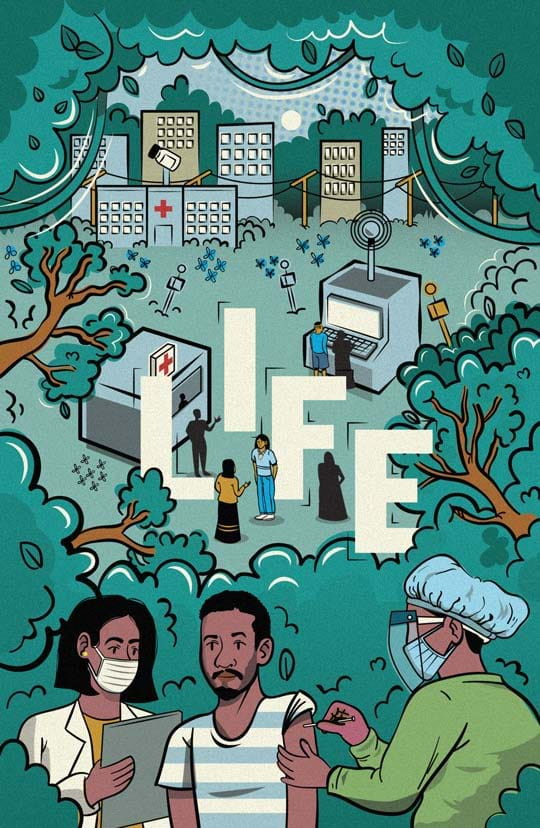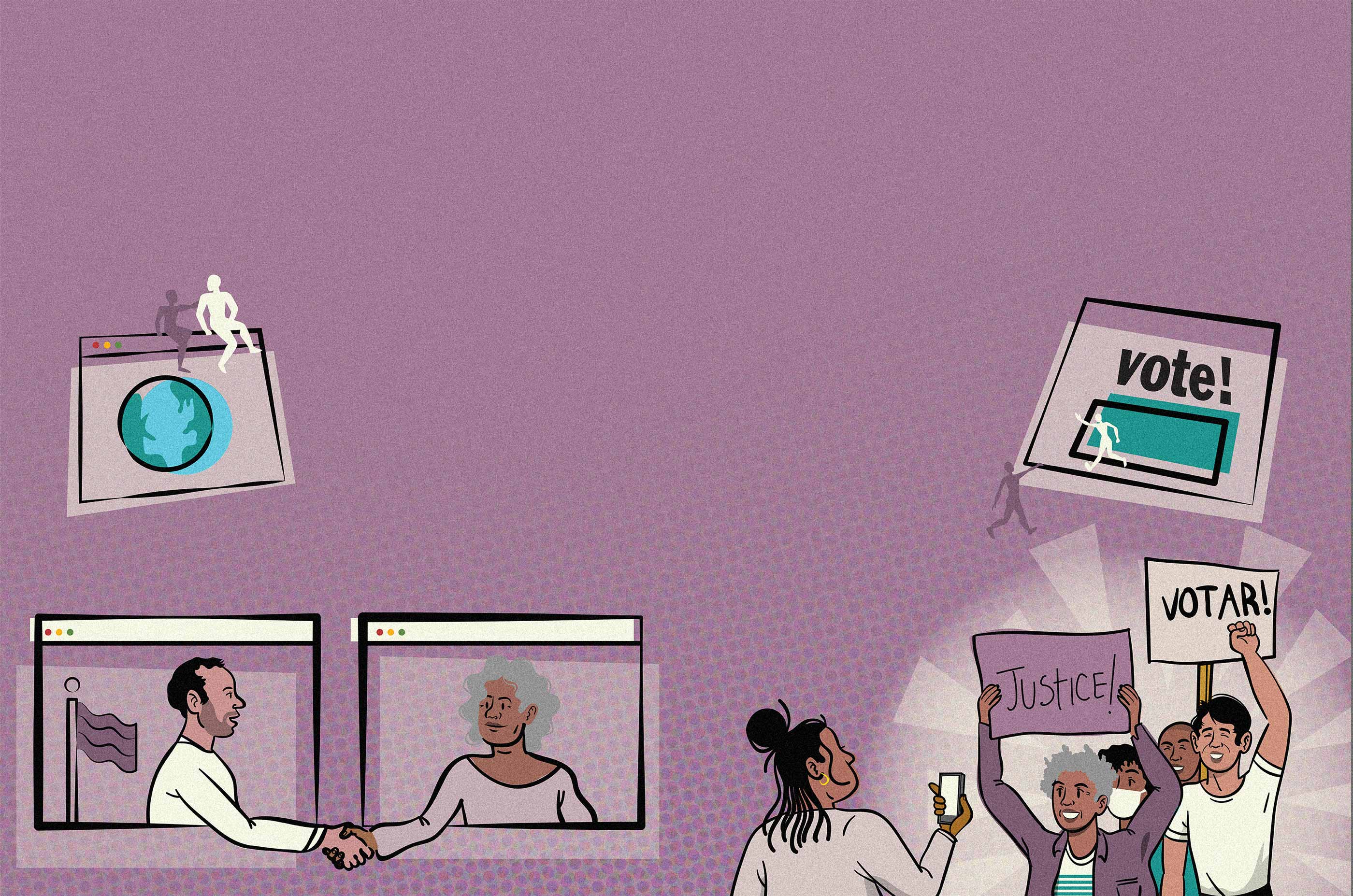
Reimagine
Balance
COVID-19, in many ways, marks the first global health emergency, moving faster and farther to touch every corner of the world than any pandemic of the past. As we faced this universal threat, it showed us how interconnected the world is and opened up an opportunity for international cooperation and solidarity.
However, we saw nations turn inward to protect their own citizens and economies while xenophobia, anti-semitism and various forms of racism proliferated, geopolitical rivalries deepened, and multilateral cooperation and institutions suffered from the pervasive spread of a nation-first mindset. Within countries, we also saw divides widen as they each grappled with their own issues of equality and injustice.
As the world opens back up, we have an opportunity to reflect on how our social, economic, political and governance systems operate on a national and global level—and how they need to change. The challenges we face require new systems of cooperation that foster a balance of power and resources, so we can imagine a truly equitable future that enables all countries and populations to prosper.
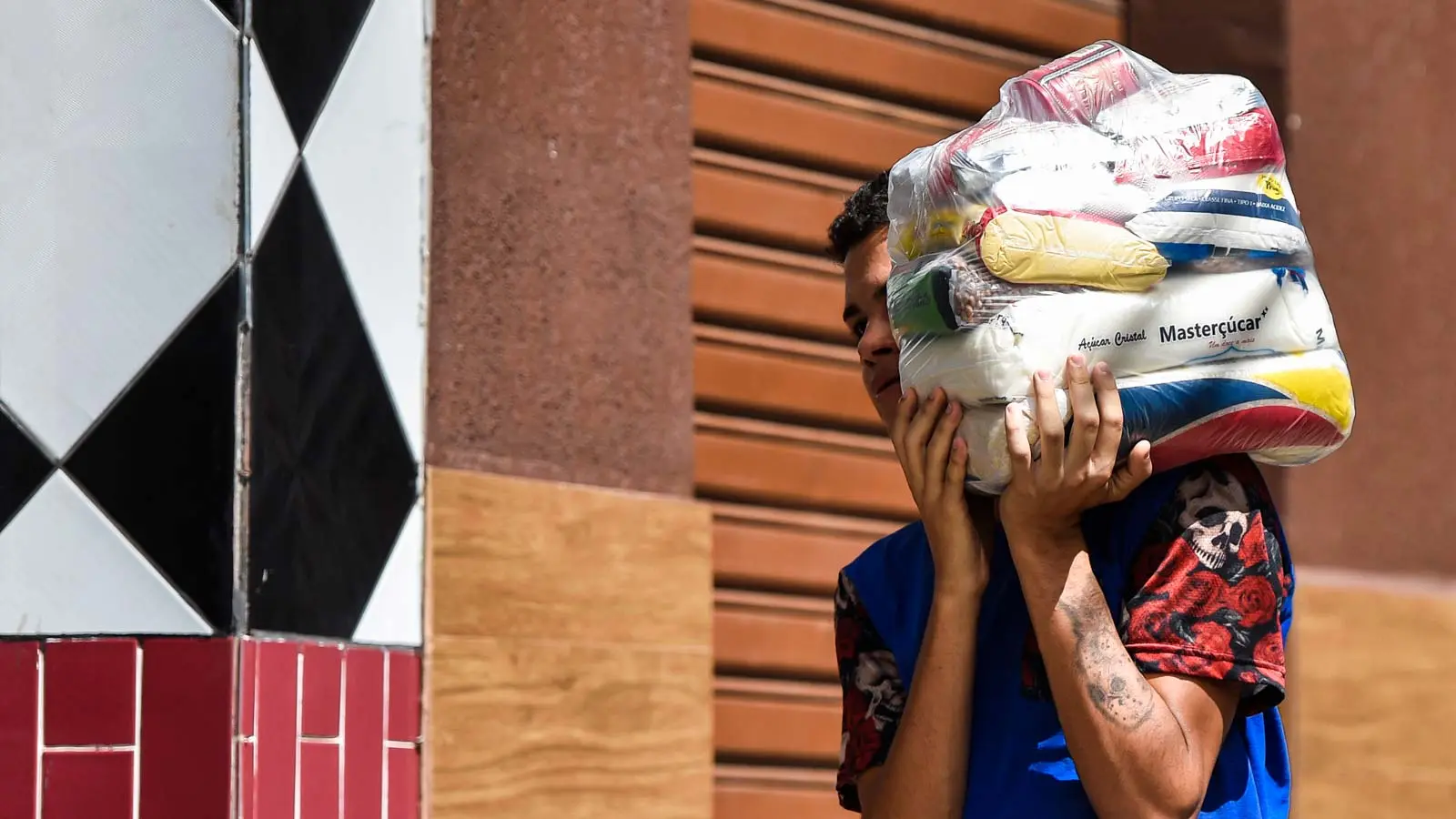
Protect and promote civic space and engagement
Around the world, billions of people are excluded from full participation in the political, economic, and cultural systems that shape their lives. Without the space to organize or the opportunity to speak out, laws and policies fail to address their needs, enabling the powerful to acquire more power and deepening inequality.
During the pandemic, civil society has been instrumental in providing vital support to the most vulnerable. However, civic space—be it physical or digital—is rapidly shrinking due to governments abusing their power, increasing surveillance, rising criminalization of activists and journalists, and restrictions on civil society’s ability to register, operate and receive funding. Since March 2020, 155 countries have placed new restrictions on public assemblies. In the U.S, voter suppression, gerrymandering, attacks on the media, and efforts to roll back protections like the Voting Rights Act are eroding trust in the government and creating hurdles for civic engagement.
Spotlight
The power of civil society to provide critical resources to those in need has been demonstrated in all corners of the world. In Tunisia, over 100,000 people leveraged social media to pool resources to fight the virus and worked with regional authorities to identify families with urgent financial needs. In Brazil, organizations like Redes da Mare supported efforts to distribute food, masks, medical aid assistance, and access to reliable information about the pandemic to 54,000 people across 16 favelas.
Thriving civic spaces and meaningful civic engagements are required for people to raise their voices, influence decisions, and hold governments to account. We are witnessing a political awakening fueled by movements of historically excluded groups who refuse to be silenced. We must increase opportunities for diverse communities to fully participate in civic life and support the multi-issue, multicultural organizations at the heart of these movements. We must protect journalists and social leaders calling out injustices and abuses of power, and cultivate a free press that’s fully representative of the world we live in. And we must urge governments and multilateral organizations to commit to safeguarding and expanding civic spaces to preserve the freedom of assembly, association and expression for everyone.
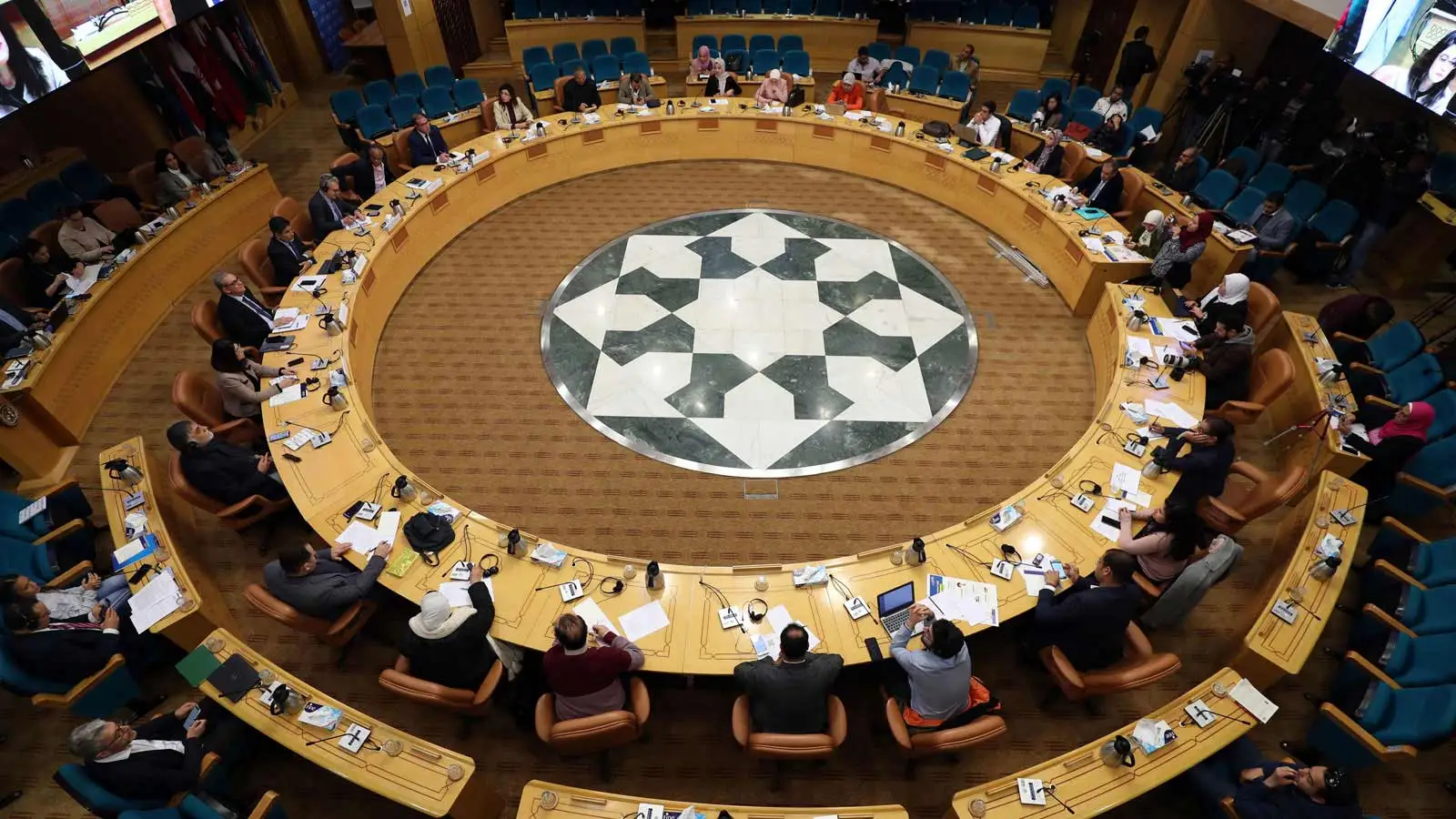
Bolster international cooperation
As a world, we are focused on achieving the same shared goals—from ending COVID-19 to mitigating climate change—but turning those goals into real, concrete action has been a challenge. As a result, low- to middle-income countries, particularly in the Global South, bear the brunt of these crises, exacerbating inequality on an international scale. The pandemic has exposed and accelerated a shift in the global order, a shift that was necessary well before the virus’s arrival.
Progress is only possible when all countries can prosper. As we see how interconnected and interdependent we are, we have an incredible opportunity to redefine how we operate as a global society. Collective action and cooperation are essential to address our shared challenges and advance justice. Already, we are seeing what’s possible as governments, corporations, organizations and citizens far and wide come together to support Ukraine, despite Russia’s relentless attempts to pressure democracies into failure, challenge international alliances, and erode unity.
To protect that web of mutuality and reimagine our global systems with equity at their core, we need more voices at the table—especially the Global South and historically excluded communities—to design solutions and foster strategic alliances among organizations and governments at every level. We need to effectively utilize and modernize multilateral organizations, such as the United Nations, the World Bank, and the World Health Organization, so we can bridge divides between nations, break down barriers to development, and meet the challenges facing us today—and tomorrow. And we need to bring together diverse ideas, individuals and institutions to create a shared vision for the world that will lead to an inclusive global order.
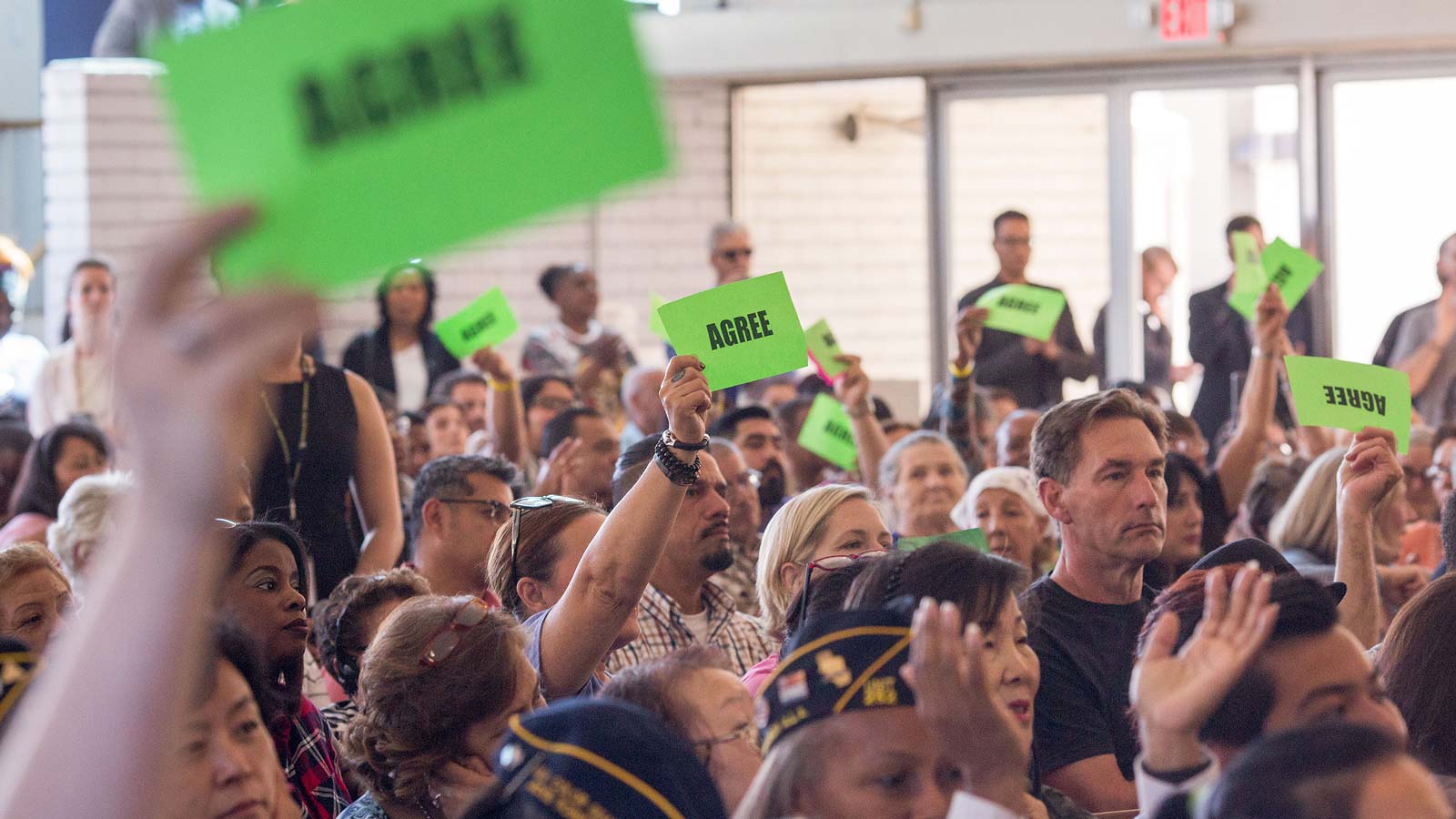
Stem the rise of polarization
From India to the United States, polarization has been tearing at the seams of democracies long before COVID-19 swept the globe. If it continues to spread, it can undermine and severely damage the institutions essential to democracy, erode public trust, and exacerbate intolerance, discrimination and violence.
From deeply rooted divisions to divisive leaders who stoke tensions to the rise of misinformation, the drivers and patterns of polarization transcend borders. Polarization can then entrench itself in society, enabling factious actions and reactions to feed off each other, ultimately dragging countries into a downward spiral of anger and division.
Spotlight
The Global Initiative on Polarization, spearheaded by the Institute for Integrated Transitions and the Ford Foundation, is a multi-year effort fostering a deeper global understanding of the diverse causes and consequences of severe polarization. Through research, global convenings, and work in select countries, it examines challenges and solutions at the nexus of polarization, conflict and social justice.
Uniting a deeply divided country is difficult and complex, but it’s not impossible if we’re willing to confront the root causes of injustice that fuel polarization. We must create opportunities to give rise to a diverse range of voices and support the civil society groups that advocate for underrepresented perspectives. We need governments and funders to provide those organizations with the resources they need to operate, especially in hostile environments, and enlist their help to protect the activists and journalists at the center of the fight for justice. We have to find bigger, bolder ways to collaborate across borders because polarization is infectious, and no single organization or government can tackle it alone.
And perhaps, most importantly, governments and leaders must embrace the criticism and be open to change, so we can determine how to forge ahead united and build a just future together.
Photography
Pedro Vilela/Getty Images, Mohamed El-Shahed/AFP, David McNew/Getty
Illustration
Justine Allenette Ross
